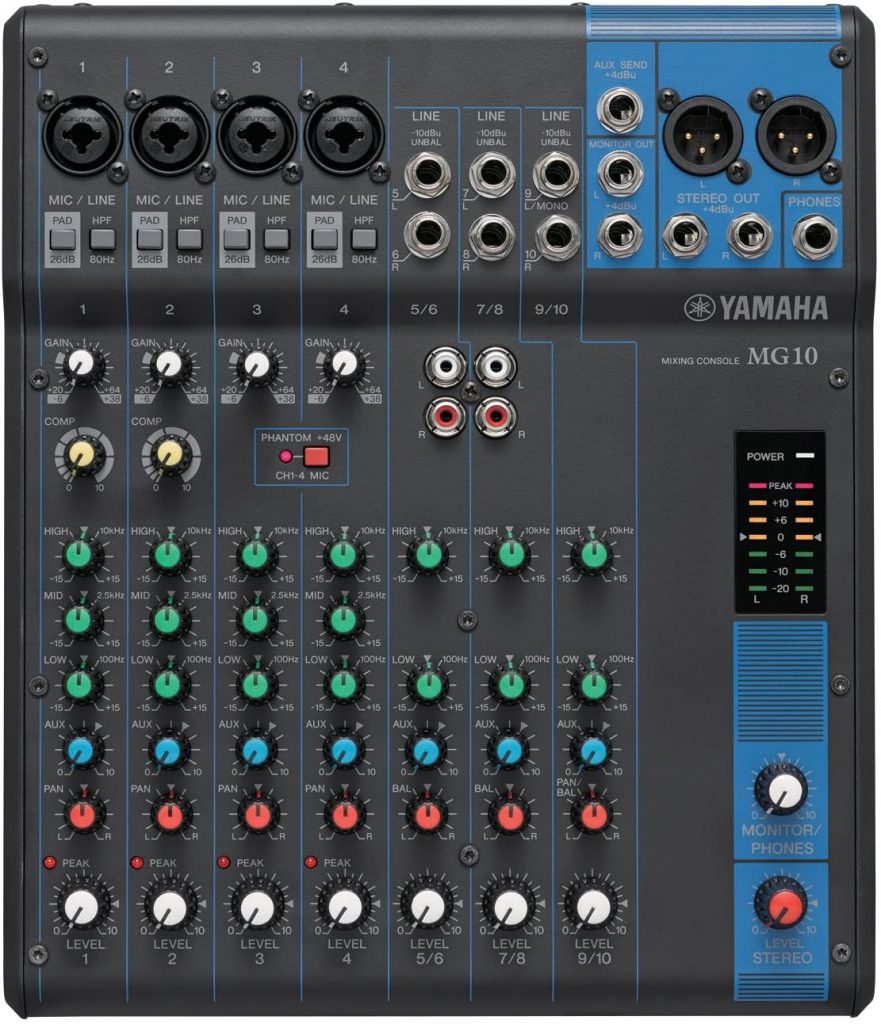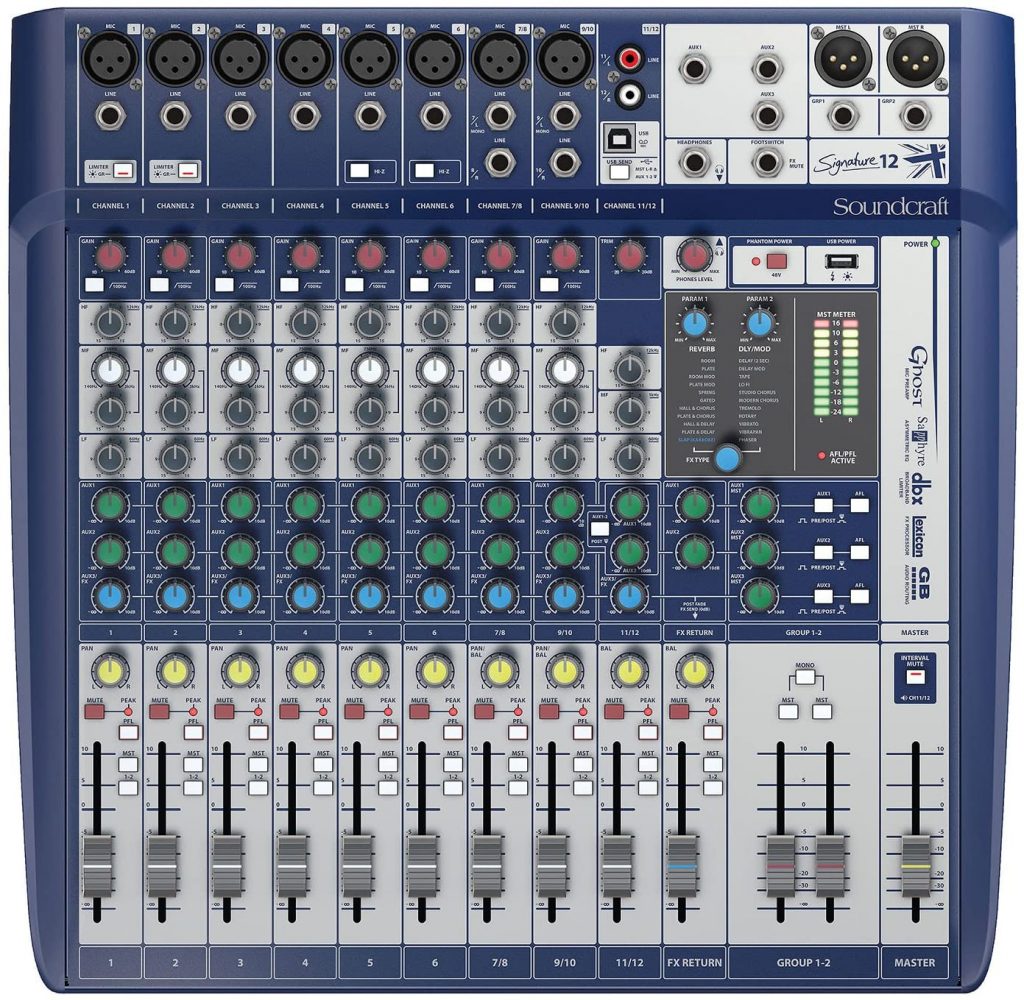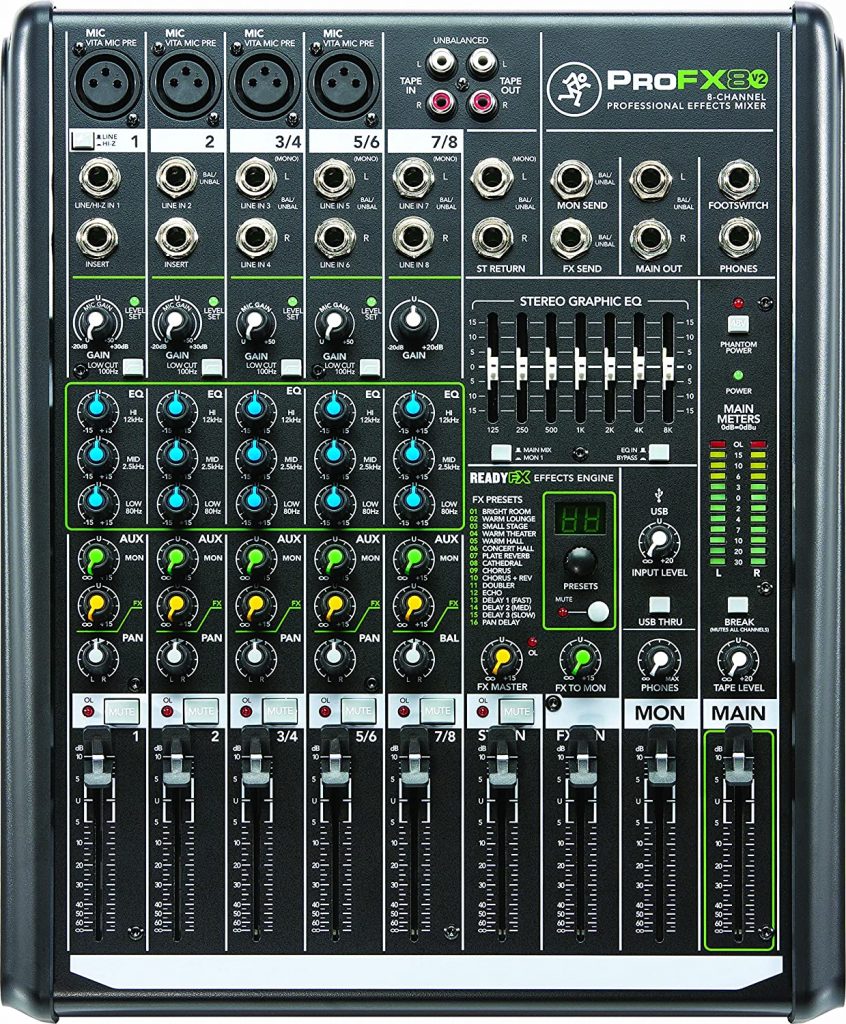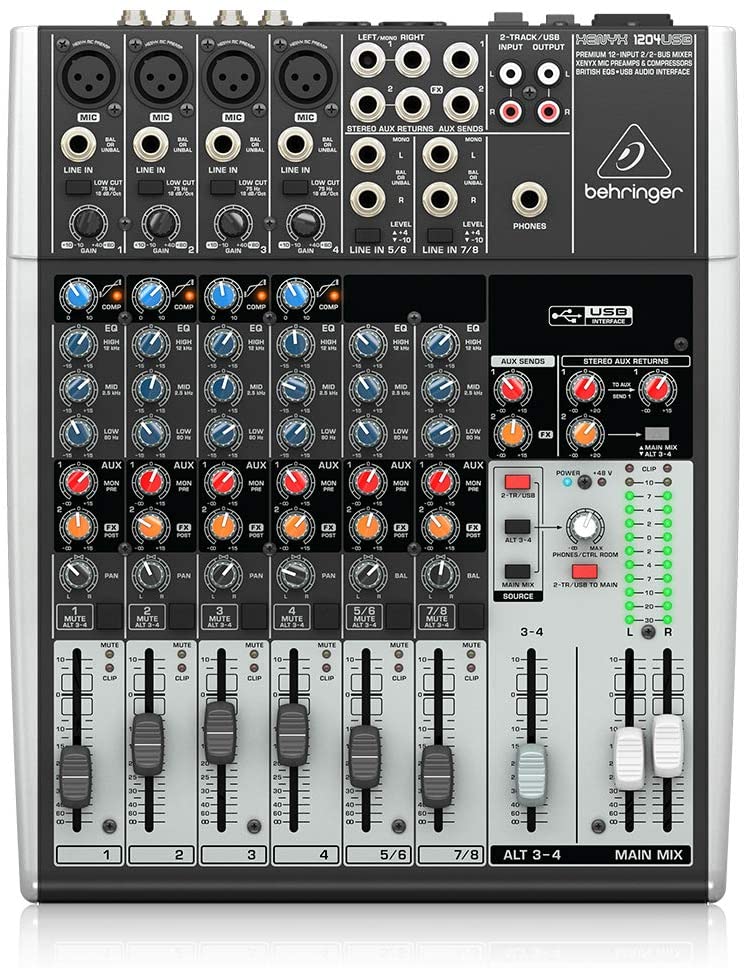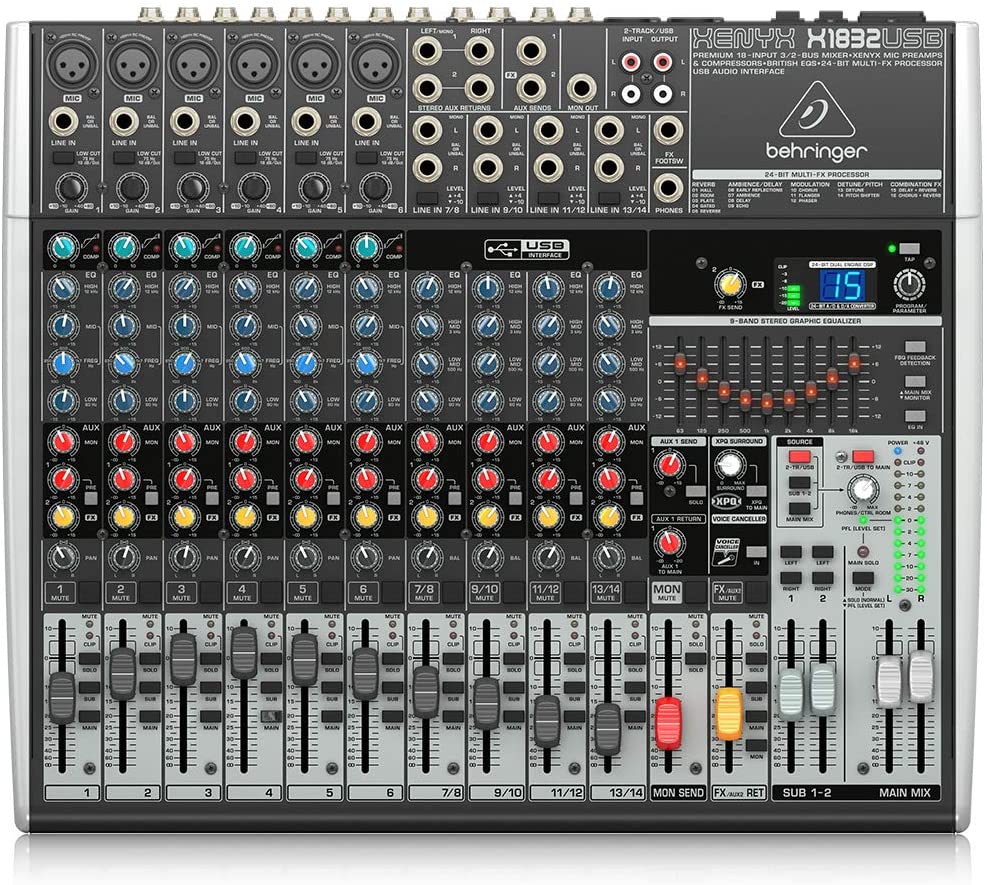Podcasting is a relatively simple yet efficient way of reaching your audience. But like any other modern communication method, podcasting needs its own set of equipment like a recorder, mic, different software, etc. An audio mixer is one such equipment.
While using an audio mixer when podcasting is not something mandatory, it can actually help you a lot in regards to the quality of your podcast. There are a lot of people who advise against and a lot who advise in favor of using mixers for podcasting.
The reasons may vary, but one fact that does not change, as a podcaster having some knowledge of different mixers is of utmost importance, whether you choose to use them or not in the long run.
So if you are planning to invest in a mixer or are just looking up casually, here are the 5 best mixers for podcasting hand-picked by yours truly!
Table of Contents
Top 5 Best Mixer for Podcasting
1. Yamaha MG10
A 10 channel standalone analog mixer, which is great for those who are just starting out. It comes with three band EQ and high pass filters that ensure to eliminate any unwanted noise and result in a cleaner final mix. The filters, along with the knob compressors, make it easier to control and work with.
The design of this mixer is compact, rugged, and flexible, and with the studio-quality preamps, it is very easy to operate and can be used for a variety of tasks, including recording and live music.
Being a part of Yamaha’s MG series, this mixer also has the custom-made MG01 Op-amp, which ensures high-quality sound, and this is what makes it one of the best options to go for.
Pros:
- It is impact-resistant.
- It comes with built-in SPX digital effects.
- It is a good value for money.
Cons:
- The FX function is not up to standard.
- It doesn’t have a USB interface.
- It can’t be directly connected to the PC.
2. Soundcraft Signature 12MTK
This is a 12 input analog mixer with onboard effects and ghost mic preamps. This mixer makes use of Sapphyre Asymmetric EQ along with high pass filters for quality sound reproduction and works with 48V Phantom Power. The faders are quite good, and the overall design heavy and reliable.
Soundcraft Signature 12MTK is really easy to use with switchable instrument inputs and flexible audio routing. The DAW plug-ins can be used for live music play and work well, but the mixer still feels lacking when it comes to recording specifically. It doesn’t seem to protect the in-progress sound from wireless interference as well. But when all is said and done, it is a good value for money product that doesn’t disappoint.
Pros:
- It delivers a clean sound and works quietly.
- It supports a USB interface and comes with a USB charger.
Cons:
- It has a low USB output.
- It doesn’t have a power switch.
3. Mackie ProFX8v2
A good quality mixer with low noise Mackie Vita preamps and a 7 band graphic EQ. It comes with a ReadyFX Effects engine, which has as many as 16 effects to offer. Though it is more specifically designed for live sounds, it does well when it comes to recording and podcasting as well.
It is a versatile and good value for money mixer, but it does have a couple of points that make it fall short of perfect. The USB interface seems to be a bit lacking, and the background noise while recording is something that might cause a lot of inconveniences, especially if you are a beginner and working with a limited budget.
But the build and effects are all top-notch otherwise, and with just a little tweak here and there, this could be one of the best investments of your podcasting career.
Pros:
- It comes with built-in effects.
- It has a built-in USB interface.
Cons:
- It doesn’t have compressors.
- Not very durable, so if you are thinking five years ahead, this product might not be for you.
4. Behringer Xenyx 1204USB
From Behringer, we have this high headroom, low noise analog mixer that is both reliable and easy to use. The design and build are compact, but it doesn’t lack any necessary features and has a lot to offer, including 9 60mm throw faders, 4 studio-grade compressors with ‘one-knob’ function, and XENYX mic preamps.
It is versatile and makes use of British channel EQs, a perfect little audio mixer for use during live shows, as well as your recordings and playbacks. It includes a bidirectional stereo USB audio interface, which makes recording and connecting it to multiple sources easy. This feature makes it a perfect choice if you intend to invite multiple speakers or have remote co-hosts for your podcast.
Pros:
- It has a built-in USB/Audio Interface.
- It is excellent for podcasting, hosting multiple speakers.
Cons:
- It has no simultaneous output option.
- You have to download the software separately, and there are no specific drivers for it.
5. Behringer Xenyx X1832USB
A low noise analog mixer with 6 studio-grade compressors and British 3 band EQ, which results in good quality, clear audio. It also has an FX processor which comes with 16 editable presets. The high headroom XENYX preamps work great as well, and this mixer is great for podcasting and recording.
Though it is user-friendly, it is not exactly the right fit for total beginners. So if you are an experienced podcaster, you might find something of value with this mixer.
You can also find more guides and instructions for your Behringer Xenyx Mixer available at manualsnet.com.
Pros:
- It has great sound quality and a versatile device.
- It comes with an FBQ Feedback Detection System.
Cons:
- The USB interface is unreliable.
- Only two inputs can record simultaneously.
Frequently Asked Questions
And now, a couple of common questions answered to make the decision easy for you:
1. Why Should We Use a Podcast Mixer?
Though it might take a while to get the hang of how it works, using a podcast mixer has a number of benefits that are well worth the time, effort, and investment. These benefits include:
- First and foremost, it improves audio quality and does so in real-time while your recording is ongoing. This saves you a lot of time trying to enhance the audio of your recording post-production.
- It makes your podcast more interesting by allowing you to integrate different elements like background music, sound effects, music, other recordings, etc. while you are recording in real-time.
- It gives you greater control over your recording, allowing you to change anything that you might feel unsure about.
- It makes your podcast more interactive.
- Mixers facilitate multi-channel recording, which is one of the best things about it. By using multi-channel, you can invite guest speakers, initiate interviews, and keep up the balance when there is more than one speaker with their distinct voices and tones.
Of course, there are quite a few other benefits of using a podcast mixer as well, but for now, these are the main ones that are enough to provide an insight into how useful and versatile mixers can be.
2. How to Tell Which Mixer is Right for You?
But even with mixers, there are at least a dozen different brands and types all claiming to be best, but to know which one is actually best for you, there are some things you need to look out for while choosing a podcast mixer. These are:
- How much is your budget, because spending blindly on anything is never a good idea.
- What’s your ultimate goal, what kind of podcaster you want to become. Because there are different mixers for solo podcasters and teams or if you plan to invite guest speakers or are thinking of having a co-host.
- What types of controls the mixer has, as different audios need different controls for the desired effects.
- The number of input and output channels, which can be anywhere from between 2 to 24, and the functions, features, and flexibility of a mixer depends on how many controls it has.
- Lastly, does the mixer have an Auxillary Out, and do you need one with it? If you really intend to invite co-hosts for your podcasts, especially remote ones, having this feature is a must.
And so the type of podcast best suited for us depends on what we intend to do in the future and how much time, effort, and money we can actually invest in it.
Final Thoughts
Finally, podcasting is as much a fun activity as it is progressive. More and more people are turning to it, as listeners or as podcasters, and it can be said that it won’t be fading away from relevance anytime soon.
Among thousands of people already working on their podcasts and projects, if you plan to create your own place, you will have to learn to adapt and try out new things, apart from having interesting content, of course… that’s actually the most important.
What audio mixers do is give you a chance to try out new things on your own and make your original content more interesting, more interactive, more professional, more you. So check them out, and if you find a mixer perfect for you. Go for it!
